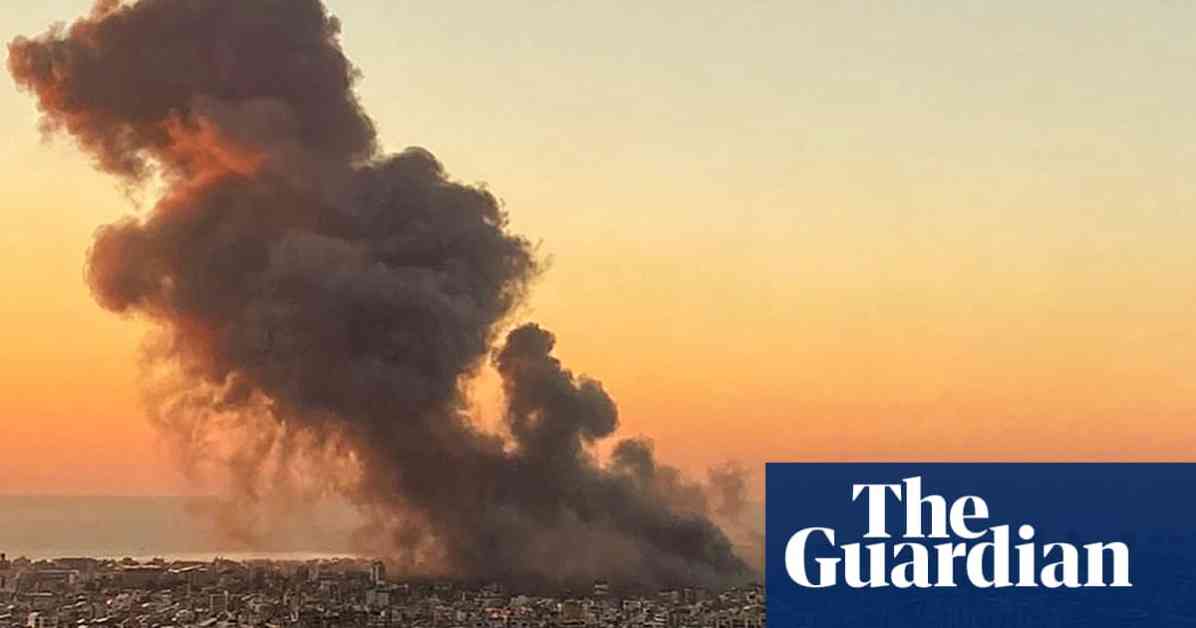Israel’s recent targeted strike on Hezbollah leader Sayyed Hassan Nasrallah has raised tensions in the ongoing conflict between the two sides. The strike, which occurred in an underground headquarters in Beirut’s southern suburbs, represents a significant escalation in the nearly year-long war between Israel and the Shia militant organization.
Escalation and Retaliation
The strike on Nasrallah comes on the heels of a bellicose speech by Israeli Prime Minister Benjamin Netanyahu at the UN General Assembly. In his speech, Netanyahu not only directly threatened Iran but also vowed to continue “degrading” Hezbollah. This aggressive rhetoric set the stage for the targeted strike on Nasrallah, signaling a shift in Israel’s approach to the conflict.
Israeli journalists with connections to the country’s defense and security establishment were quick to suggest that Nasrallah was the intended target of the strike. Reports indicated that he was present in the area of the headquarters at the time of the attack, adding to the significance of the operation.
Israel’s decision to target Nasrallah represents a departure from previous understandings between the two sides. In the early months of the conflict, it was widely believed that Israel would not assassinate the most senior members of Hezbollah. However, recent escalations on both sides have eroded these “red lines,” leading to a more aggressive and targeted approach to the conflict.
Regional Implications
The strike on Nasrallah has far-reaching implications for the region and beyond. It not only challenges Hezbollah’s capabilities and leadership but also poses a direct challenge to Iran, a key ally of the militant group. Nasrallah’s close ties to Tehran have long been a strategic deterrent for Israel, with his influence extending to tens of thousands of Iranian-supplied missiles aimed at Israel.
The attack on Nasrallah has the potential to draw Iran into a wider conflict, as the strike represents a direct challenge to Tehran’s interests in the region. Iran’s embassy in Beirut condemned the airstrike, warning that Israel’s actions “change the rules of the game” and that appropriate punishment would follow. This response underscores the complex web of alliances and rivalries at play in the Middle East.
The strike on Nasrallah also raises questions about the broader implications for regional stability. Other Iranian allies in Iraq, Syria, and Yemen possess their own missile capabilities, which could be brought into play in response to the attack on Hezbollah’s leader. This multiplies the potential for conflict and underscores the interconnected nature of regional power dynamics.
International Relations and Diplomacy
The strike on Nasrallah has significant implications for Israel’s relationships with its international partners, particularly the United States. The timing of the attack, coming in the midst of efforts to broker a ceasefire with Hezbollah, represents a significant challenge to diplomatic efforts in the region. The Biden administration, which believed it had secured Netanyahu’s support for a temporary truce, now faces a major setback in its efforts to de-escalate the conflict.
Netanyahu’s decision to launch the strike on Nasrallah despite international diplomatic efforts highlights the complexities of Israel’s strategic calculations. The move not only challenges the Biden administration’s approach to the conflict but also sends a strong message to Iran and other regional actors about Israel’s willingness to take bold and decisive action.
In conclusion, Israel’s targeted strike on Hezbollah leader Sayyed Hassan Nasrallah represents a significant escalation in the ongoing conflict between the two sides. The attack has far-reaching implications for the region and beyond, challenging established norms and alliances in the Middle East. As the situation continues to unfold, the international community will be closely watching to see how the parties involved navigate the complex and volatile dynamics of the conflict.












